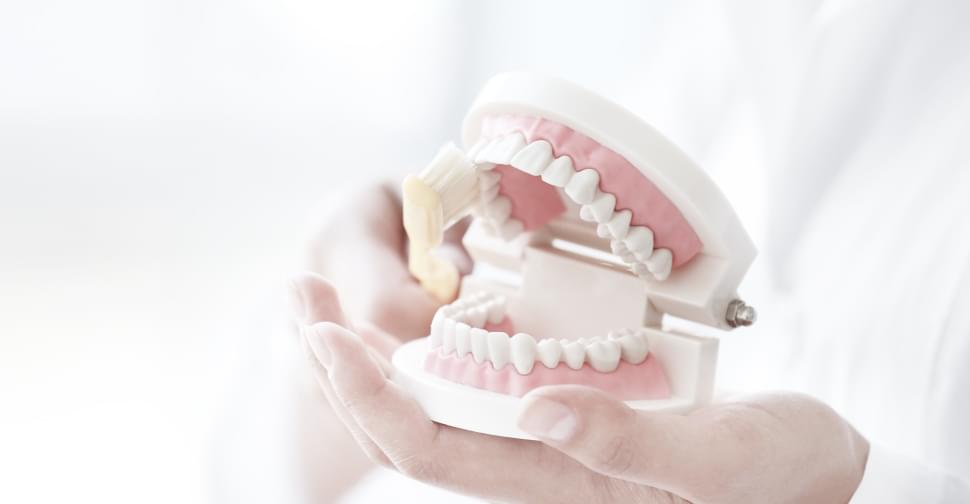Loading...

Dentistry involves the prevention, diagnosis, and treatment of a wide variety of conditions, disorders, and diseases, affecting the teeth, gums, and maxillofacial (associated with the jaw and face) region of the body. General dentists provide services related to the general maintenance of oral hygiene and tooth health.
Ideally, dentistry is preventative. The American Dental Association (ADA) recommends that you visit your dentist regularly (at least once every six months) to ensure proper oral hygiene and functionality. Regular checkups and oral health maintenance prevent the development of serious dental problems that can require costly treatment.
Ensuring effective brushing is important in getting rid of food and bacteria properly.
Step 1) Place a pea-sized amount of toothpaste on the brush and hold at a 45-degree angle.
Step 2) in small circular and back and forth motions, move the brush gently along teeth and gums.
Step 3) Brush all surfaces inside the mouth, including the tongue. Ensure that the back sides of the teeth (top and bottom rows) are being cleaned by brushing vertically in up and down motions.
Tip) It is recommended to use a 2/2 strategy which includes brushing two minutes in the morning and two minutes at night as a minimum standard for healthy gums and teeth.
Cleaning between teeth may help to prevent build-up of plaque bacteria on the teeth. This may be done with dental floss or interdental brushes on regular bases.
80% of cavities occur in the grooves, or pits and fissures, of the chewing surfaces of the teeth, however, there is no evidence currently showing that normal at-home flossing reduces the risk of cavities in these areas.
Dental fillings help repair tooth cavities. Dentists use them to "fill in" areas of damage or decay.
RCT is a dental procedure used to treat a tooth that has become infected or inflamed in the soft inner tissue, called the pulp that lies within the tooth's root canals.
The procedure involves removing the infected or inflamed pulp and then cleaning and disinfecting the root canals to remove any remaining bacteria or debris. Once the canals are cleaned, they are filled with a material called gutta-percha, which seals the canals and prevents further infection.
Cleo Cosmo's Best Dentist suggest that Root canal treatment is a common and highly effective way to save a tooth that would otherwise need to be extracted due to infection or inflammation.
Root canal treatment can provide relief from pain and improve oral health, while preserving the natural tooth and restoring its function. It is a common and highly effective procedure that can help to prevent the need for more invasive and expensive dental treatments down the line.
Dental veneers are thin, tooth-coloured shells placed on the surface of the teeth to improve appearance, giving patients a better-looking smile Laminates differ in the sense that they are much thinner and require less amount of enamel to be removed for them to be placed. Laminates can be referred to as an advanced porcelain veneer as they both share the same function and benefits.
* The goal of teeth replacement is to restore your tooth's function as well as aesthetics. Dental Implants are a great way to restore a beautiful smile by replacing missing teeth.
* A dental implant is a surgical fixture that is placed into the jawbone and allowed to fuse with the bone over the span of 3 to 6 months. Dental implants act as a replacement root of a missing tooth. They are made of titanium, which due to its properties is not rejected by the body.
* One of the main benefits of implant dentistry over other tooth replacement options is that they prevent the sunken look that is associated with missing teeth. Because the implants are placed in the jawbone, they help retain the fullness and contours of the face by retaining the supporting bone, much like a natural tooth root.
* In addition, dental implants look and function much more like natural teeth when compared with other types of replacement options. Unlike dental bridges, which depend on surrounding teeth for support, dental implants stand-alone without affecting other teeth.
* Dental implants require no extra maintenance aside from regular brushing, flossing, and recall visits to see your hygienist.